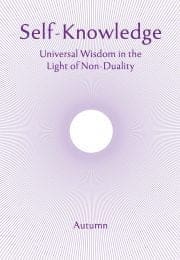Happy Birthday
Our date of birth is a fact that is likely to gain in importance as life progresses. In this age of form-filling and identity verification, to lack precise information about our age will arouse suspicion and possibly lead to exclusion. And yet, we ourselves cannot know our date of birth with certainty; all we can do is to trust the goodwill of our guardians as eye-witnesses and experiencers of the great event. Nor is our date of birth divulged to us in circumstances of solemn formality. On the contrary, its anniversary is usually associated with collective joy, treats and gifts, and a special song to mark the occasion. It is only after this strangely jubilant event has been celebrated a few times, and our mind has begun to ask ‘why?’ that this special date in our life becomes not only pleasant but meaningful.
This is not to suggest that our membership of the born and living community really had its start on the day of our nativity. Our pre-natal existence is one of exquisite preparation, inseparable at every minute stage, from the ‘me’ that newly enters the world as it comes to appear to our human intelligence.
But what about our existence before conception? Did we exist in some non-physical form? Some religions speak of a spiritual existence, an identity without a form, destined to be born on earth in accordance with the impressions and tendencies developed in previous lifetimes. Others may insist that at conception, the soul is created anew by the supreme being. The non-dual view, in its highest form, recognises one supreme and perfect reality, eternal, never born, and all-in-all.
The word ‘unborn’ is relatively rare in English-language writings; in fact, you may find that it is not included in otherwise comprehensive dictionaries. Yet this word has a special place in the non-dual teachings, and is a pointer to the absolute freedom, even now, of our innermost nature. Let us cite two instances from the Bhagavad Gita where the idea signified by this expression sheds light on the profound and liberating nature of the non-dual philosophy which is the essence of the Gita’s teaching.
The first instance comes early in the second chapter, in the context of the teaching of the true nature of our essential being, our true self. This is envisaged as pure, infinite consciousness, free from all limiting associations accumulated in this and other lifetimes. In this verse, the self is said to be ‘indestructible, eternal, unborn and inexhaustible.’ Another verse close by speaks of self in this sense as all-pervading. Thus the Self transcends not only time, but also space.
It is true that this particular set of verses also speaks of self as subject to reincarnation, but this is the individualised self that is convinced of its own limited nature and has for the time being to act from that standpoint. This individualised destiny is not the final truth, and to act wisely and selflessly while one still believes oneself to be an individual, will in due course purify one’s understanding, enabling one to realise the truth of self in its ultimate, timeless, all-pervasive nature.
The other instance where the fundamental unbornness of our pure being and consciousness comes is in chapter fifteen, when the reality itself refers to its eternal, birthless nature as the one reality taking on itself the illusory limitations of mind, body and senses of all beings. Here the idea of oneness supersedes the sense of separateness, and, as in the Upanishads, ‘this great and birthless Self’ is to be realised as our own immediate consciousness and being.


